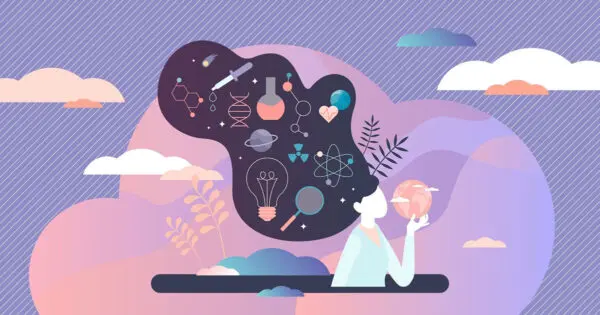What is an ibogaine experience like? Overview of Ibogaine
What is ibogaine?
Ibogaine is an alkaloid found in the root bark of the West African Tabernanthe iboga shrub. The iboga root bark has been used for centuries in West Africa by the Pygmy people as well as the Bwiti tribes. People often seek out ibogaine for the series of positive effects it can have on a persons’ life which may vary from person to person depending upon the reasons treatment is sought out. For substance users, ibogaine can help someone break free from dependency, heal trauma, and find inner peace. This article will cover what ibogaine feels like and how long it lasts, as well as common side-effects experienced during an ibogaine session.
The Acute Experience
How Long Will Ibogaine Last?
In smaller doses, ibogaine has stimulant properties, making it easier to focus and difficult to sleep. In large doses, ibogaine produces an oneiric state, meaning a dream-like state. The ibogaine industry calls this a “flood” of ibogaine, referring to the receptors of the brain being metaphorically “flooded.” During this time, participants have described a sense of deep introspection, and many people will have closed-eye visuals, such as cinematic vignettes – literally, a waking dream. Some people experience a small extent of open-eyed altered perceptions, such as tracers and sensitivity to light, but it is rare for an experience to fully occur with open eyes.
The acute experience of rapid imagery, sounds, and thoughts usually lasts between 12-36 hours, but some reports show people can have experiences that last for a couple of days. In rare cases, people will feel some effects of ibogaine for up to 96 hours. Anything longer is an adverse reaction often called a “fugue state” or “acute confusional state,” also incredibly rare.
Once ibogaine metabolizes, the effects begin within 1-3 hours of ingestion. The beginning 3-12 hours can be very intense. Don’t expect to sleep for a day or two because most people cannot sleep for at least a couple of nights. Fast-moving cyclical thoughts, rapid imagery, auditory hallucinations, and insomnia are common side effects. Expect a full day after the acute experience where emotions may be challenging, and the experience doesn’t seem like it is quite over yet. The ibogaine industry calls this the “grey day.”
What Does It Feel Like?
It is hard to describe the experience in words, but some describe it as an ineffable spiritual awakening and an interruption of destructive habits. People who have taken ibogaine generally describe that they feel like their brain was reset.
Ben*, who completed an ibogaine session in early 2020, describes that “I had complete agency again. I realized my identity wasn’t my thoughts. I wasn’t the intrusive thoughts that had dominated my life for the previous months. All of my memories, traumas, and feelings had specific areas in the brain that they lived, and I had access to these areas. I could rearrange them so I wasn’t defined by them. My cognitive abilities were impressive while the experience was also excruciatingly uncomfortable.”
As the experience is so intense, it can be challenging to express how ibogaine feels. In one study, 90% of people said the experience was challenging to put into words.
What does it feel like to have visions?
Some of the experience is relaxed. You’ll most likely start comfortably in bed, laying down with a blanket, and eyes closed. As the effects begin, some people feel like their heart is pounding, others will feel more awake. Nausea occurs in some people, as does vomiting. Vomiting is often induced by movement, such as moving around in bed.
Most of the experience occurs with eyes fully closed. This is an oneiric state, and you will experience somewhat of a waking dream; a state similar to rapid-eye-movement (REM) has been observed on flood doses of ibogaine. The first thing most people experience is an auditory buzzing akin to a swarm of locusts, a weed-whacker, or a helicopter. In a study on the effects of ibogaine, 80% of participants reported a buzzing or vibration during the onset of their experience. Most people describe feeling detached from the imagery they are seeing, which allows them to reprocess past experiences without ego or emotion.
People don’t lose their sense of self on ibogaine, sort of like their ego takes a backseat at a movie theater. This allows fear to dissipate for most people. Some people describe seeing cartoon-like scenes, old memories, visiting with ancestors, and past or future lives. Other people have described harsher imagery such as apocalyptic scenery or injustices throughout history unique to a person’s ancestry such as racism and slavery in America, the Holocaust, and mistreatment of women. Opening one’s eyes will generally interrupt the dream state. If the ibogaine provider asks any questions, participants can pause the experience and answer. If a participant needs something — they will be able to ask. People are aware of their surroundings and that someone is checking their vitals (ideally every 20-30 minutes) and in on them.
However, some people don’t have visions at all. In these cases, continuous thoughts, reflections, and deep introspection may occur; possibly including an inner dialogue with oneself or the ibogaine. Other people may only experience auditory hallucinations such as past conversations and music. Sometimes people will experience what appears to be random images that make no sense to the individual or one image on repeat for hours. Whether or not one has visions, the experience is similar in that the individual will still be lying down and unable to walk around.
Physical Side-Effects
While participants won’t lose their sense of self, they might lose their ability to walk and move around. Many people report having some level of ataxia on ibogaine. This is when muscle movement can be slowed down or even temporarily paralyzed. Dry mouth, tremors, nausea, vomiting, restlessness, heart-rate changes, low blood pressure, and temperature changes have all been reported as side effects. People also lose their sense of time during this period. It’s a taxing experience on the body. It’s easy to feel restless, unable to get comfortable, like a wet towel being rung out.
As the visions subside, a longer stage of reflection and introspection begins. Usually, people describe hearing themselves and having an inner monologue that goes on for hours — and sometimes a dialogue with the ibogaine.
Unfortunately, and this is where things start to become more taxing — the thinking, the inner voice, isn’t going to stop just yet. People describe ongoing looping thoughts. And while there is a potential meaning to be made behind the messages, people are usually drained and tired and, at some point, ready for the experience to finish.
The “Grey Day”
What is a “grey day”?
The grey day usually emerges as the reflection period wears off. At this point, most people are usually on day two of their experience. A wide range of emotions can come up, most of them deeply challenging and emotional. Many providers and clients agree that what comes up on a grey day is what someone is liberated from later on, but it is an intensely difficult experience. Most people are not recovered by this point and still haven’t slept or eaten a full meal, so it’s also physically uncomfortable.
Additionally, insecurities and the reasons people sought treatment may become exacerbated during this time. It’s a vulnerable space to be in, and it’s important to have support from a qualified center. To read more about what the grey day process is like,start here.
Afterwards
Everything is New
Ibogaine providers point out that it’s not uncommon for people, particularly people who use substances, to experience some physical discomfort when they come out of their experiences — such as nausea, stomach ache/cramps, or diarrhea. There is speculation that this could be due to increased sensitivity at receptor sites.
For example, many opioid receptors exist along the GI tract, and opioid-induced constipation is common for people who use opioids. Once an opioid dependency is eradicated, stomach issues and diarrhea may follow while one’s gut and digestive system find a new equilibrium. This isn’t always the case though; for people who seek out ibogaine for substance dependency, it is in the realm of possibilities for drug use to mask hidden health issues. If an uncomfortable side-effect persists or feels particularly severe, it may be a good idea to talk to a doctor.
The Lasting Benefits of Ibogaine Treatment
Ibogaine is an individualized experience. Each person’s experience is unique, and it can be hard to generalize the “flood-state.” Some people might report that ibogaine made them feel as if they were a child again, skipping down the sidewalk and laughing for no reason at all. Others have reported feeling more connected with themselves—more aware of their thoughts, feelings, emotions; some even say they feel less resistant or judgmental towards others.
Others feel inspired and creative, some people want to get back into hobbies and physical activities they haven’t done in years, and yet others may have a slower recovery process and slowly get better day by day. Some people have drastic ups and downs and work through very challenging emotions at seemingly random times of the day. It’s important to remember that what a person does after their experience is just as, if not more, important than the experience itself. Whatever comes up for a person is usually uniquely beneficial for their life. Trust, acceptance, and patience are key for long-term benefits and wellness.
The lasting effects are also very personal. It has been said that old memories may surface during an ibogaine session and other people claim to see ancestors — people they knew or had never met, as well as past lives. Recalling revelations and memories about an experience can be challenging, emotional, and also profound.
How long does ibogaine stay in the system?
Ibogaine’s effects can be felt for a long time. Scientists aren’t yet sure how long noribogaine stays in the system. Most people in the ibogaine industry settle on an average of about ninety days, but there are anecdotal reports of people feeling the effects of the experience for 2-8 months afterward. Regardless of when noribogaine, ibogaine’s long-acting metabolite, actually eliminates itself from the body, what someone does after their experience is essential. Without integration or aftercare, ibogaine is just an experience. With integration and aftercare, ibogaine can become a profound, life-changing experience with long-term efficacy.
Will I become a different person afterward?
Ibogaine can assist one in releasing oneself from false identifications, as well as unconscious programs and self-imagery. The person should then be able to make sense of what they have learned through this process, exploring how the new aspects of their true identity will change how they view life. This could include a radical change in attitude towards work, relationships, social obligations, and towards oneself while providing insights into other dimensions of reality. Individuals who have undergone this type of process may experience changes in how they see themselves, their place within society, and their identity. For ibogaine therapy to provide these benefits, the entire process must be planned for; put time into preparing for the experience and make a plan for after.
*last name left out for anonymity








